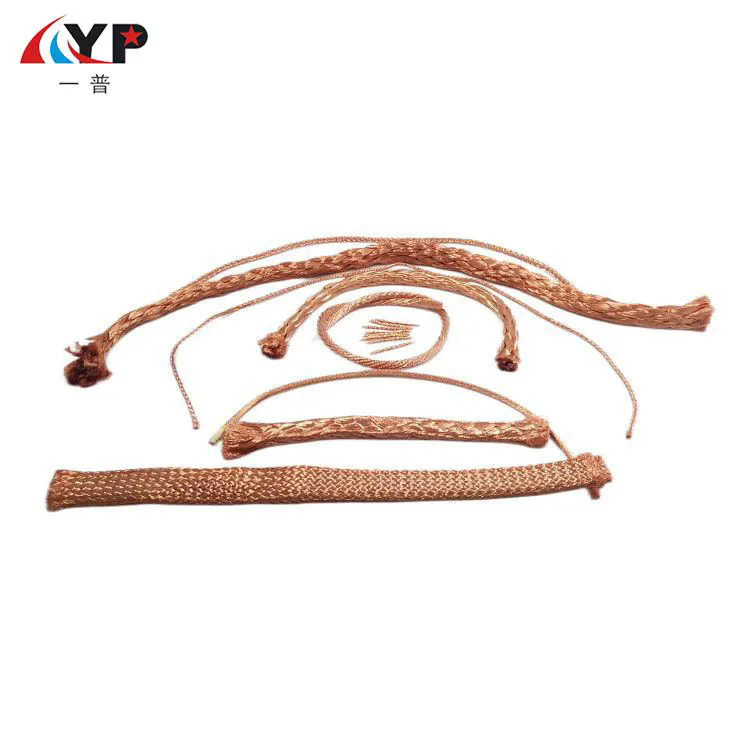The Essential Guide to Copper Flexible Connectors: Why They Matter in Modern Electrical Systems
2024-09-13
In the world of electrical engineering and installation, connectivity is crucial. Among the various components that ensure reliable and efficient electrical systems, copper flexible connectors stand out as vital elements. In this blog, we'll delve into what copper flexible connectors are, their benefits, applications, and why they are an essential component in modern electrical systems.
What are Copper Flexible Connectors?
Copper flexible connectors are electrical components designed to join or connect electrical circuits in a flexible manner. These connectors are made from copper, a material known for its excellent electrical conductivity. They are designed to handle electrical currents while providing flexibility in applications where movement, vibration, or expansion and contraction are factors.
Advantages of Copper Flexible Connectors
1. Excellent Conductivity: Copper is renowned for its high electrical conductivity, which ensures efficient and reliable electrical connections. Copper flexible connectors minimize electrical resistance and energy loss, making them ideal for high-performance applications.
2. Flexibility and Durability: One of the key features of copper flexible connectors is their ability to accommodate movement and vibrations. This flexibility is particularly useful in dynamic environments where equipment or wiring may experience shifts or oscillations. Despite their flexibility, these connectors are durable and resistant to wear and tear.
3. Enhanced Safety: Proper electrical connections are critical for safety. Copper flexible connectors help to reduce the risk of electrical faults by ensuring secure and stable connections. They are designed to handle high currents and minimize the risk of overheating and electrical fires.
4. Corrosion Resistance: Copper has natural corrosion-resistant properties, and when combined with proper insulation and protective coatings, copper flexible connectors can withstand harsh environmental conditions. This makes them suitable for use in a variety of industries, including automotive, industrial, and marine applications.
5. Ease of Installation: The flexibility of these connectors makes installation easier in tight or awkward spaces. They can be bent and shaped to fit specific configurations without compromising the integrity of the connection.
6. Versatility: Copper flexible connectors are versatile and can be used in a wide range of applications, from connecting electrical panels to machinery, to linking batteries and distribution systems. Their adaptability makes them a valuable component in various electrical setups.
Applications of Copper Flexible Connectors
1. Industrial Equipment: In industrial settings, copper flexible connectors are used to link machinery and equipment. Their ability to withstand vibrations and movement makes them ideal for use in production lines and heavy-duty machinery.
2. Automotive Industry: In vehicles, copper flexible connectors are used to ensure reliable electrical connections between components such as batteries, alternators, and starter motors. Their flexibility helps to accommodate the movement and vibrations experienced during vehicle operation.
3. Marine and Aerospace: In marine and aerospace applications, copper flexible connectors are used in environments where exposure to saltwater, high temperatures, and extreme conditions is common. Their corrosion resistance and durability are essential for maintaining reliable electrical systems.
4. Renewable Energy Systems: Copper flexible connectors play a crucial role in renewable energy systems such as solar panels and wind turbines. They help in connecting various components of the system, ensuring efficient energy transfer and system reliability.
Maintenance and Care
To ensure the longevity and optimal performance of copper flexible connectors, regular maintenance is important. Inspect connectors periodically for signs of wear, corrosion, or damage. Proper cleaning and timely replacement of connectors that show signs of degradation will help maintain the reliability of your electrical system.
Conclusion
Copper flexible connectors are indispensable in modern electrical systems, offering a blend of excellent conductivity, flexibility, and durability. Their ability to accommodate movement, handle high currents, and resist environmental factors makes them a preferred choice for a variety of applications. By understanding their advantages and applications, you can make informed decisions about incorporating copper flexible connectors into your electrical setups, ensuring safe and efficient operation.



